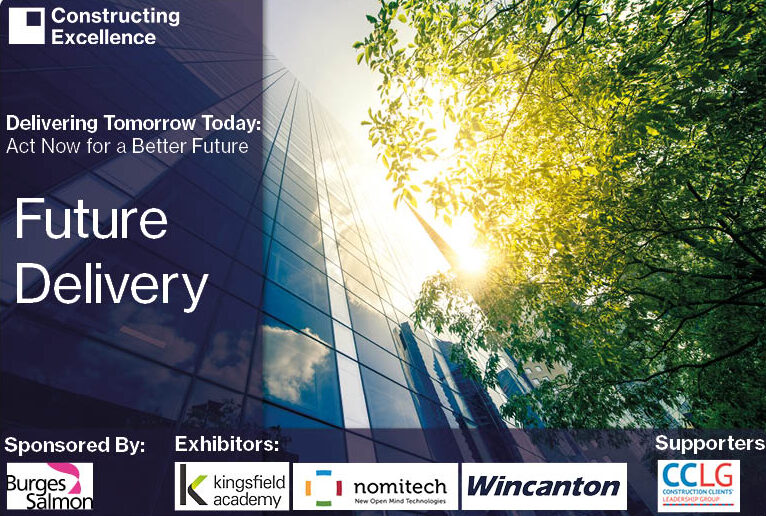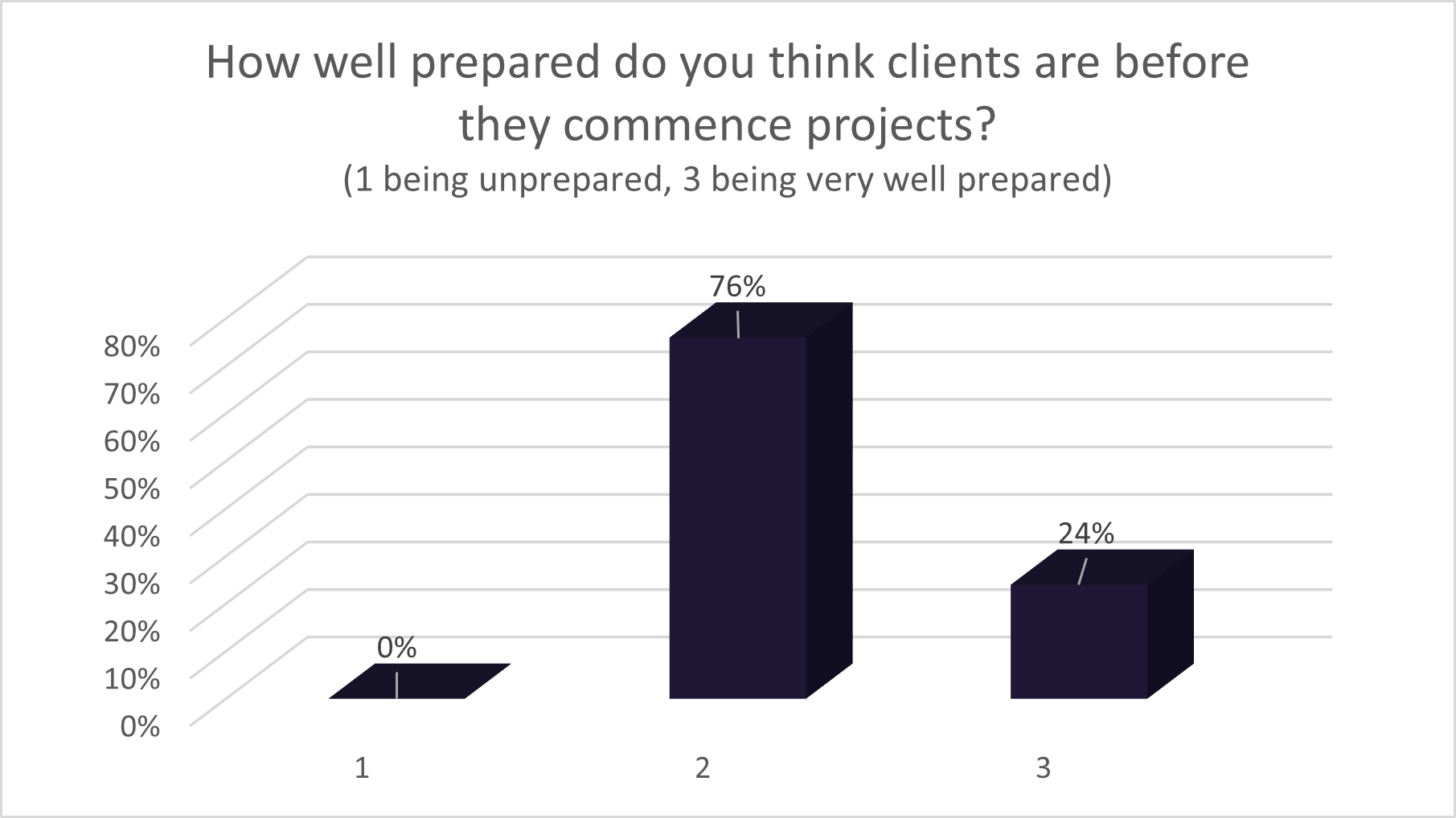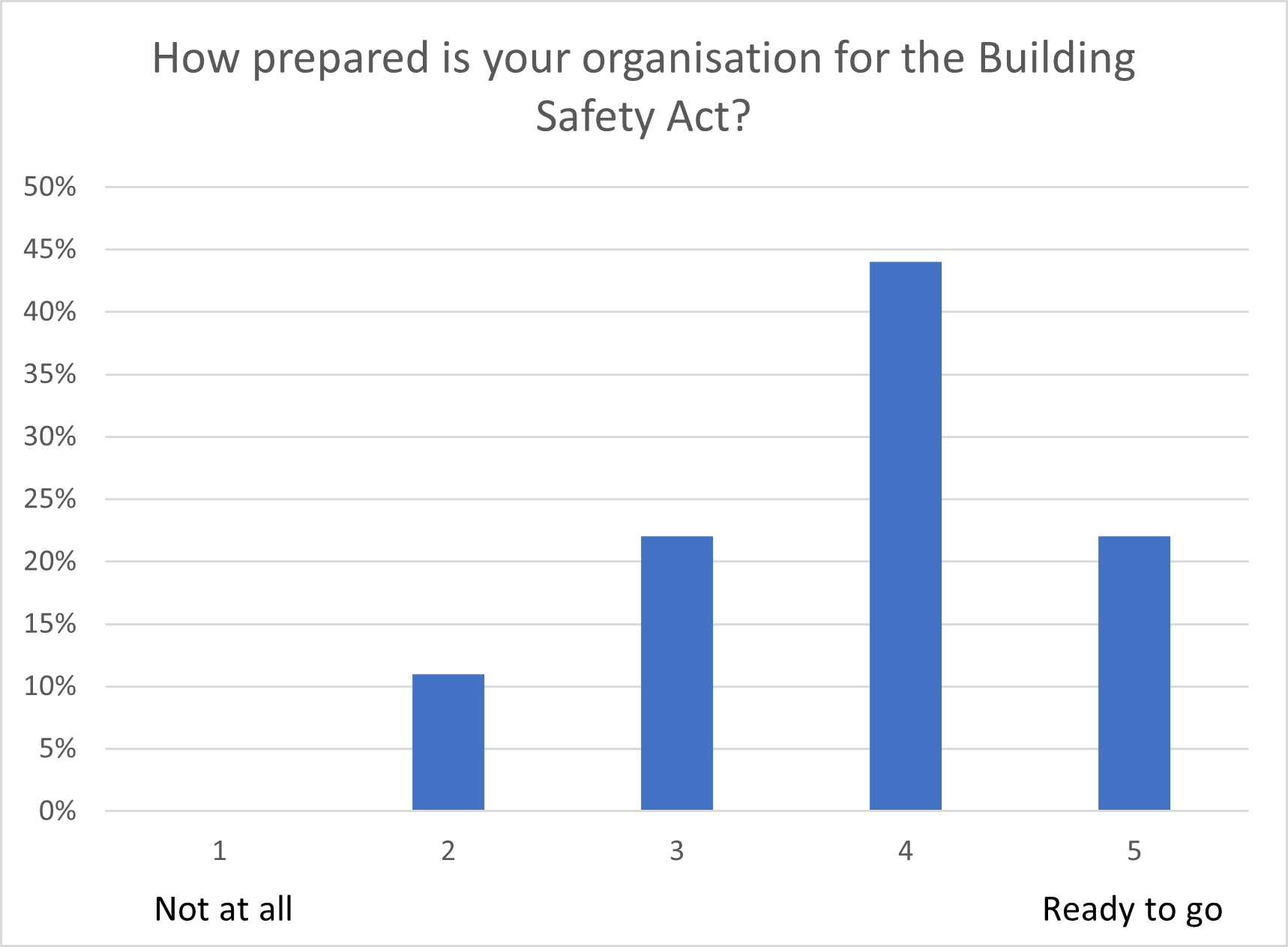The final panel of the Constructing Excellence Conference 2024, Delivering Tomorrow Today, focused on Future Delivery. The panellists shared their perspectives on delivery in relation to the Building Safety Act, procurement models, framework agreements and competencies across the industry. They explored how these areas can have a positive impact on construction’s ability to deliver projects safer, more effectively, more successfully and more collaboratively.
The session was Chaired by Phil Wilbraham and the panellists were Tom Weld, Adrienne Turner, Simon Cross and Rebecca Rees.

Competence

One of the biggest challenges facing the future delivery of construction projects is the level and range of competencies. Competence often refers to industry professionals but what gets forgotten is the supply chain and those on site. Workers on the ground need to be competent in their skills and ability to deliver projects to a sufficient standard.
Competence provides confidence in the people carrying out the work, allowing us to get it right the first time, reducing costs and remedial works whilst improving productivity and client satisfaction. Effective communication is a key factor between designers and contractors and will better support the industry to get it right the first time, minimising the chance of mistakes, miscommunication and therefore changes.
We also need to have an awareness and understanding of market volatility. This is best achieved with input from those with the greatest knowledge and key skills in the different areas of delivery. Early supply chain engagement can mitigate some of the market challenges we face, now and in the future.
Future Delivery will require integrators, panellists proposed that clients are best placed to carry out this role. Competent, engaged clients will be able to recognise competence in others, putting the right people in the right places and ensuring key skills are used to better deliver project. However, that is not to say contractors and consultants do not have a key role to play. They are currently incentivised on a time-based fee but if we can change this model, they would be ideally placed to become integrators in their own right, delivering value for the whole of the supply chain.
“We need to integrate intelligence through our project teams”.
Adrienne Turner
Attendees at the conference were polled about how prepared clients are. This preparedness needs some work and will feed into client competence.
Procurement

Good procurement practices are fundamental when delivering future projects, unlocking value for all involved up and down the supply chain.
Transparency is vital, solutions such as a two-stage procurement method can help. Ensuring early pipeline visibility across the supply chain supports the health of the industry by enabling better understanding of the volume of work and skills required across the whole of the supply chain. This supports us in putting the right people in the right places.
Currently, the public sector procures based on incentivisation. To ensure the projects we deliver also deliver value, we need integrators to cut through the competitive nature of incentivisation and bring together the appropriate people to provide value. This will ensure future delivery supports society and positively impacts climate, tackling challenged that will face the future of construction.
Frameworks

Constructing Excellence, in collaboration with Kings College London, have launched the Gold Standard Verification Scheme which provides a way to distinguish between well-run public sector frameworks and those that do not deliver added value to the process. The scheme verifies against the Constructing the Gold Standard recommendations which should be used as a checklist for clients as part of a pipeline procurement strategy.
Frameworks will play an increasingly important role in future delivery, therefore, we need to ensure they are set up and used fairly to support the industry rather than make a profit. The Gold Standard Verification scheme should help with this, build relationships and reducing framework agreements that have been set up purely for commercial gain.
Across the industry we need a diversity of frameworks to ensure there is ample choice, though they should still be open to all. We need to use the tools currently at our disposal, like the Gold Standard, to rid construction of bad practice and celebrate and focus on the frameworks that demonstrate best practice.
“Let’s use the gold standard to get rid of the bad practice and concentrate on and celebrate those framework providers that really do have the public purse at heart and have good practice at the heart of what they do”.
Rebecca Rees
The Building Safety Act is going to play a key role in the delivery of future projects across the industry and frameworks are in a good position to ensure compliance. They are able to get a view down the entire supply chain and ensure all parties involved in a project are aware of the regulations and maintaining compliance in the work the deliver. Something we need to be wary of, however, is accountability- we need to ensure we don’t start pushing risk down the supply chain and leaving those at the bottom to deal with any issues.
While the Building Safety Act will influence the whole of the industry, our delegates indicated, through the conference polls, that there is still some work to go yet in preparing construction organisations.
Future Workers

A huge consideration for future delivery within construction is who will actually be doing the work. We need to think about those coming after us- who will actually be on the ground delivering projects? If we don’t ensure we inspire and engage the next generation of workers, we will be limited in who will be available to deliver across the industry, particularly those within the ground trades.
Due to advancements in technology we also need to consider how the needs of future projects will impact the way project teams are made up. There will likely be a reduction in labour on and off site due to more digitisation and automation. While this may impact the number of workers needed, it will also impact range of skills needs- the future generation of construction will likely be more skilled, working at a higher salary and providing greater value to not only their families but their entire communities. We need to ensure we are offering the correct skills and education, right now, to support those coming into the industry in the future.
We need to figure out how to offer greater value to society and clients through a reconfiguration of contracting. We must ensure we are delivering value and avoiding a race to the bottom.
Delivering Value for the Future…
Many of the challenges we face at the moment are symptoms of a ‘lack of fat’. We need to get the price right and remove the race to the bottom mentality which is not just about price but culture and fit and collaboration. A race to the bottom leads to more disputes and difficulties during delivery, we need to work out now how to ensure project delivery is smooth, less wasteful, climate friendly and delivering value. All of the things championed by Constructing Excellence!
Thanks to Our Sponsors





